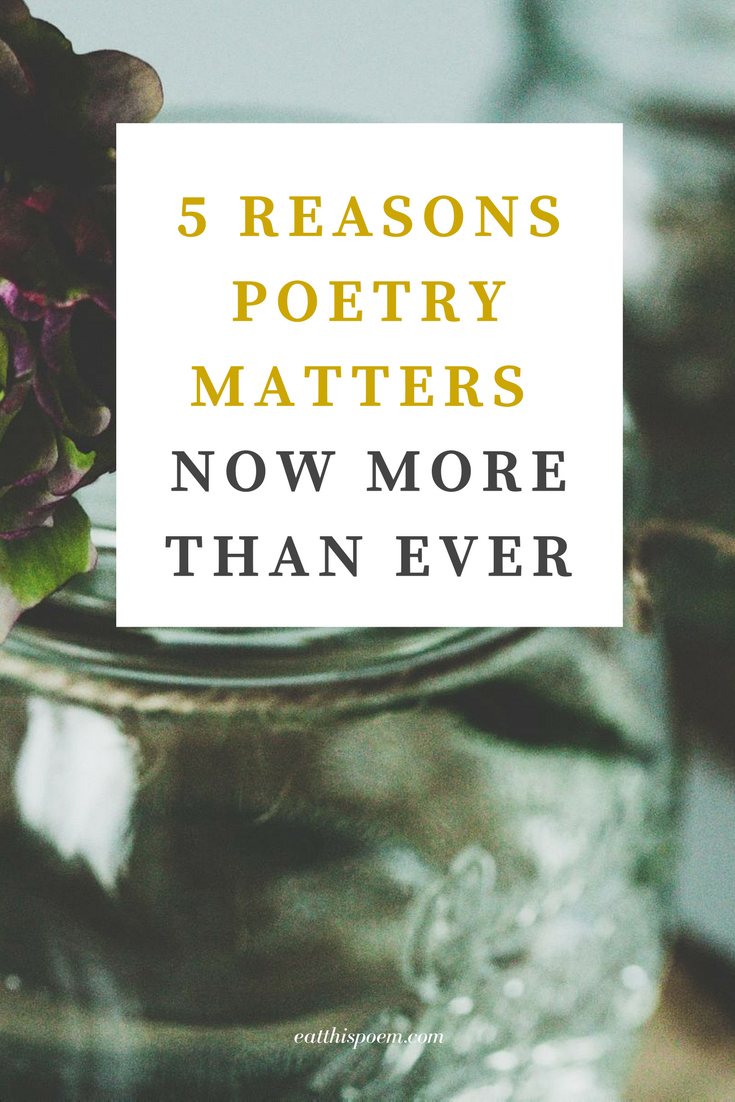I want to tell you what it felt like to hold a copy of Eat This Poem in my hands. I wanted to tell you sooner, right when the box of books arrived at my door, but I needed to think. Process. Absorb. Gather my thoughts.
So, let’s start at the beginning.
The books were scheduled to arrive at my publisher’s warehouse in Colorado on February 17, so you can imagine my excitement to receive an email a week early saying the books were here (!!) and UPS would be picking them up in a few hours (!!).
It was Friday, and I was expecting them Monday, so all weekend I tried to distract myself. I bought champagne and chilled it in the refrigerator. I brought my dog to work on Monday to help the time pass more quickly. But when I got home from work, both my dog and my son in tow, the books were not there.
Of course, I was disappointed.
I made soup for dinner, and every time I opened the fridge to pull out stock or half an onion I’d saved, I saw the champagne bottle, reminding me of the occasion I was waiting for to pop the cork.
The next day, I realized something.
As excruciating as it was to wait (also, for two nights in a row, I woke up at 3 am and tossed and turned before falling back to sleep, plus, I had a perpetual knot in my stomach), I found tremendous peace in one small and obvious detail.
The book exists.
Even though I don’t have my box filled with the proof of my years of work, the book exists. I told myself this over and over as I walked after lunch. The book exists. It will be published. It is published. You made this. It exists.
It’s worth noting I’m not the most patient person.
I’ve softened over the years, but usually when I want something or I’m ready for something, contentment is not always my first instinct.
Waiting the extra 24 hours was excruciating and anxiety producing, but it forced me into learning yet another lesson about creativity, which is, everything in its timing.
So even though I couldn’t hold it (yet), I knew it was out there in the world.
And on Tuesday, the book did come. A small package rested against my front door when I came home, again, with Henry in my arms. I still had to wait for Andrew to get home from work before opening it. I couldn’t have this experience without him, so again, I busied myself, first playing with Henry for a few minutes in his room, then scooping a pile of food into Emma’s bowl, then starting to pull leaves off the chard I was planning to saute with garlic and oil before swirling with spaghetti.
I pulled out the champagne glasses.
As soon as the keys turned in the door I screamed “Ok, let’s go let’s go!!” and started tearing into the package. Andrew came over and picked up Henry, holding his phone with one hand to try and take a few pictures.
Slowly, I pulled out two copies of Eat This Poem, then ran my finger over the raised cover. I pulled open the flap, looked at the photo and bio I had submitted months earlier. I flipped the pages, smelled them, and saw the words I’d nearly memorized after years of writing recipe after recipe, story after story.
One day I was sitting in Starbucks, writing notes next to a poem, and now I was holding the book I hoped for so long I would get to write. I want you to curl up on the couch with it, underline it, dog-ear it, use it.
Strangely, the publication of a book is both an end and a beginning.
The end of one writing journey, but the beginning of a relationship between my words and everyone who might read them.
So as much as this book is mine, soon it will be yours, too.





